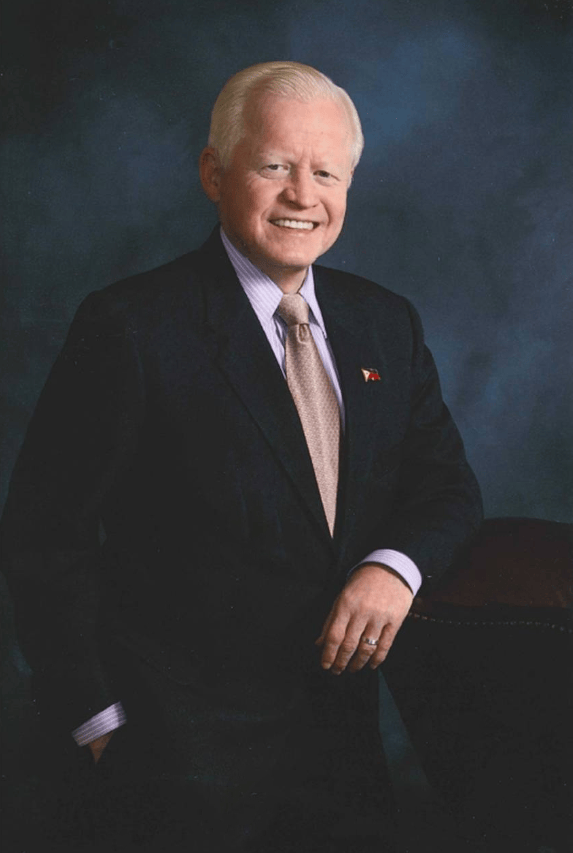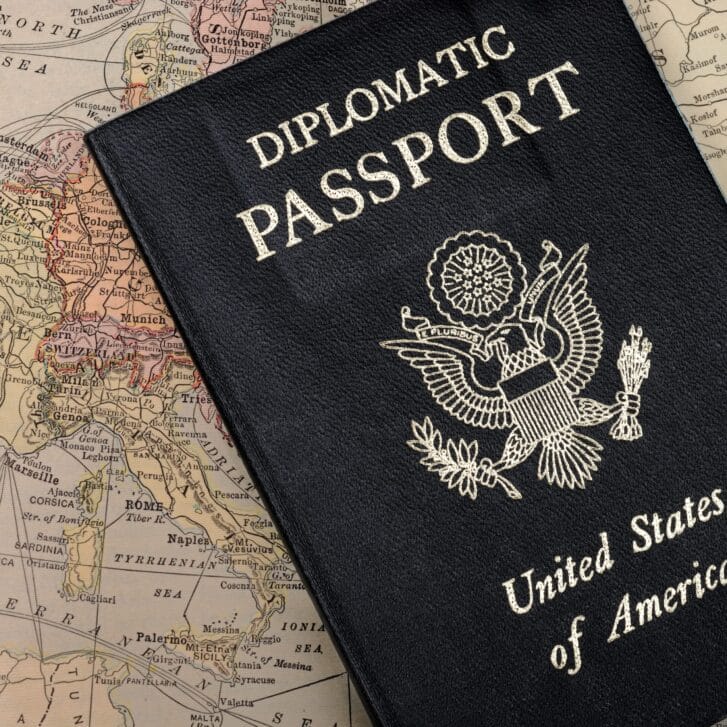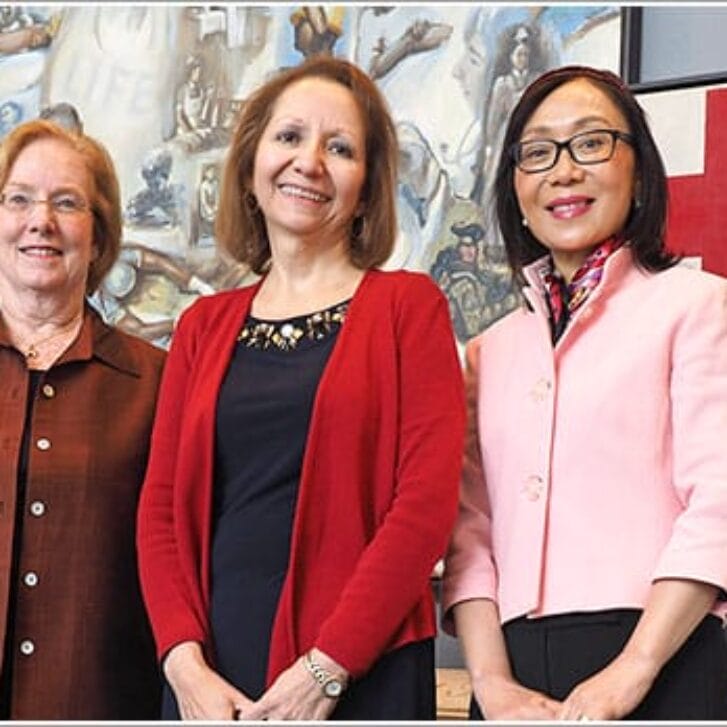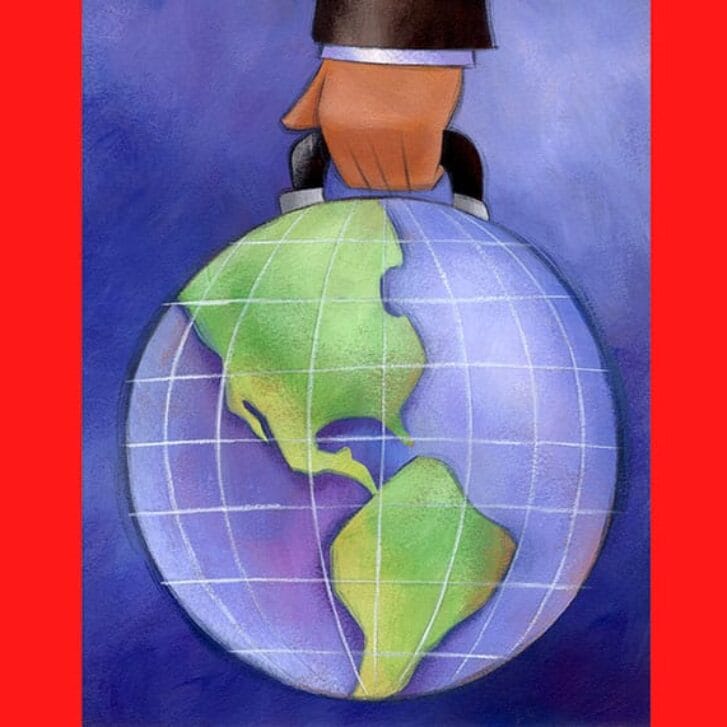The Philippines is a unique country in Asia. More than 37 percent of its 100 million people are under the age of 15. Most Filipinos speak English, practice Christianity, and are attuned to American culture. Over 350,000 Americans reside there and over 3,000,000 Filipinos reside in the United States. Once the “Sick Man of Asia,” the Philippines is getting better, with life expectancy increasing to 71 years of age, literacy reaching 96 percent, and the institutions of government becoming more balanced and transparent. Its importance as a U.S. ally grows for two reasons: It has the fastest growing economy in East Asia and in March, the Philippines and the U.S. announced the five locations/facilities under the Enhanced Defense Cooperation Agreement.
Ambassador Cuisia played a role in these achievements, and one can say his career started at Wharton, studying finance. During the 15 years after earning his MBA, Ambassador Cuisia performed auditing at Arthur Young in New York, did investment banking in the Philippines, and finally led a mid-sized commercial bank in Manila. In 1982 he was perceived as a rising star, recognized by The Outstanding Young Men Awards. In 1986, Ferdinand Marcos was deposed, and then-President Corazon Aquino invited Ambassador Cuisia to be her first government financial institution official. He became CEO of the Social Security System, and four years later Governor of the Philippine Central Bank and Chairman of the Monetary Board.
At the end of Cory Aquino’s administration, Ambassador Cuisia accepted an invitation by Hank Greenberg to become CEO of AIG in the Philippines—Philam Life—a position he held for 16 years. Under his management, Philam Life diversified into other affiliate businesses such as mutual funds, health care, non-life insurance, bancassurance, and property management. In 2010, he was asked by Benigno Aquino III to return to public life, becoming Ambassador to the United States.
I interviewed the Ambassador on the fifth anniversary of his taking office. He will return to the private sector this year, when the Aquino administration leaves office. I asked him about his path to Wharton from a small town in the Philippines and his role as Ambassador.
“I was serious as a boy to get an education. I recall vividly what my father told me: ‘Look, I can’t give you much inheritance in terms of wealth, but what I can give you is a good name. Protect it.’ I value that advice from my dad very much. I played sports in high school, but quit the team because my grades were slipping. I received a five-year scholarship to De La Salle University, and then a scholarship to Wharton. I always tell young people: Get the best education you can and get the most out of it that you can. For myself, I excelled in studying accounting—and I put it to good use in my profession. If you get good education, then you can go up in any organization.” (You can see his focus on accountability here in a speech he gave in 2009, as chairman of National Citizens’ Movement for Free Elections, a prominent election monitoring organization.)
Ambassador Cuisia devotes his time to three areas: working between the U.S. and the Philippines to accomplish their common security concerns in Southeast Asia; optimizing commerce between the U.S. and the Philippines; and representing Filipinos in his jurisdiction, which includes the Philippines and much of the Caribbean.
He has made an impact in all three areas. He has helped orchestrate the U.S. military’s deeper engagement with the Philippines, especially with the challenges in the South China Sea, where the Obama administration has forcefully supported the rule of law, and in which the Philippines seeks peaceful settlement through arbitration. In terms of trade, he’s been called “indefatigable,” visiting more than 40 states, bringing investors and businesspeople together and representing the Aquino government’s improvements in transparency, intellectual property, and competitiveness. One of his favorite roles, however, has been to engage Philippine youth.
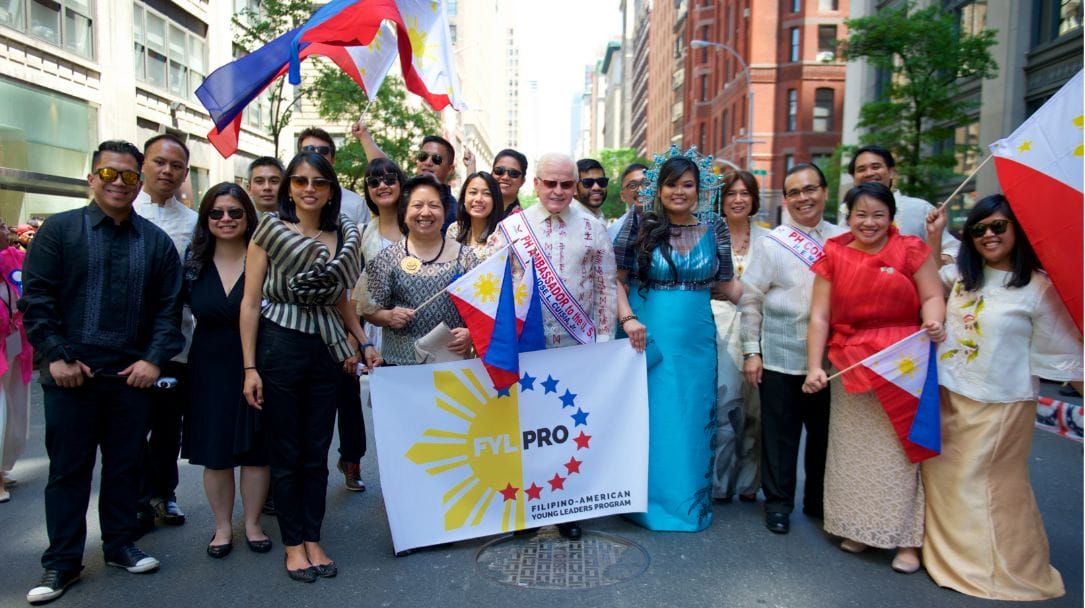
Ambassador Jose Cuisia, Jr., WG’70 with his wife and FYLPRO alumni, in New York City
“In 2010, my wife suggested: Why don’t you reach out to young Filipino-Americans? We started a Merienda with the Ambassador Youth Forum, holding them at various universities. I would open the meetings with a few remarks, and then have successful Filipino-Americans speak who could inspire and inform the youth.
“Then, we set up Filipino American Youth Leadership Program (FYLPRO) in which we selected 10 candidates who we would bring to the Philippines for a one-week immersion session to meet businesspeople, entrepreneurs, nonprofit leaders. They could appreciate more how fortunate they are to get the good education here in the U.S., and appreciate their parents or grandparents who migrated here. They see that they can contribute to the homeland of their parents. Today we have 40 alumni. Two of these alumni, Angela Lagdameo and Michael Vea, led Teach for The Philippines, where Filipino-Americans spend two years of their life teaching in the Philippines. I’ll continue pushing this even after I step down from my Ambassadorship.”
I asked for his reflection on his Ambassadorship. “I didn’t have diplomatic experience, but Americans have expressed gratitude for my background in business. I think I have been able to promote the interests of the Philippines and to work with and protect our Filipino community here. I hope we laid a foundation for stability in Southeast Asia; for free flow of commerce and ideas between the United States and the Philippines; and most of all for the youth to appreciate both of these innovative and courageous countries. On a personal level, I return to my father’s counsel, and hope I have established an unblemished reputation.”




















